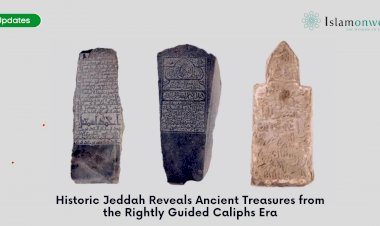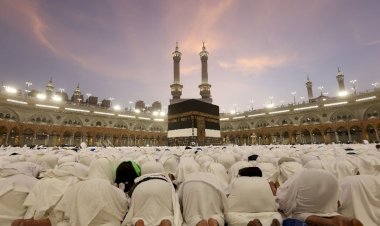Saudi Arabia’s Grand Mufti Sheikh Abdulaziz Al-Sheikh Passes Away at 82
Riyadh: Saudi Arabia on Tuesday announced the death of its Grand Mufti, Sheikh Abdulaziz bin Abdullah Al-Sheikh, closing a chapter on more than two decades of service as the Kingdom’s highest religious authority.
The Royal Court confirmed his passing early Tuesday morning, noting his lifelong dedication to Islamic scholarship and fatwa. The funeral prayer will be held at Imam Turki bin Abdullah Mosque in Riyadh. King Salman bin Abdulaziz directed that Salat al-Ghaib (funeral prayer in absentia) be held for the late scholar after the Asr prayer at the Grand Mosque in Mecca, the Prophet’s Mosque in Medina, and all mosques across the Kingdom.
Born in Mecca in 1943, Sheikh Al-Sheikh memorised the Qur’an at the age of ten and pursued Islamic studies until he rose to become one of Saudi Arabia’s most prominent scholars. Despite losing his eyesight in early adulthood, he continued his path in teaching, preaching, and issuing fatwas.
He began his career as a teacher at Imam al-Da‘wah Institute in 1964 before becoming an imam and khatib in Riyadh. In 1982, he was appointed khatib of Masjid Namirah in Arafah. He was the sixth khatib of Arafah in the Saudi era, delivering the Hajj sermon at Masjid Namirah for 35 consecutive years (1982–2015)—the longest tenure of any khatib in the history of Islam. He joined the Council of Senior Scholars in 1987 and, in 1999, succeeded Sheikh Abdulaziz bin Baz as the Kingdom’s Grand Mufti and Chairman of the Council of Senior Scholars.
For decades, Sheikh Al-Sheikh was a familiar voice on Saudi radio and television, guiding Muslims through major religious issues and serving as a reference point for fatwa, jurisprudence, and public religious life.
King Salman and Crown Prince Mohammed bin Salman expressed their condolences to his family and to the wider Islamic world, praising his lifelong commitment to serving the religion and the nation.
Sheikh Abdulaziz Al-Sheikh came from the Al-Sheikh family, descendants of Sheikh Muhammad ibn Abd al-Wahhab, the 18th-century scholar and founder of the Wahhabi movement, which was later termed the Salafi movement. Since the historic pact between Muhammad ibn Abd al-Wahhab and Muhammad ibn Saud in 1744, the Al-Sheikh scholars and the Al-Saud rulers have maintained a close partnership—one providing religious authority and the other political leadership—forming the foundation of the Saudi state.
While Sheikh Abdulaziz Al-Sheikh’s religious authority stemmed from his lineage to Muhammad ibn Abd al-Wahhab, it is important to note that many traditional Muslim scholars and communities across the Islamic world have historically disagreed with the Wahhabi approach. They criticised it for its rigid interpretations and divergence from the broader Sunni scholarly traditions that emphasise continuity with classical schools of jurisprudence, spirituality, and cultural diversity.
Despite this, the alliance between the Al-Saud rulers and the Al-Sheikh family ensured that Wahhabi/Salafi teachings remained central to Saudi Arabia’s religious establishment.
Disclaimer
The views expressed in this article are the author’s own and do not necessarily mirror Islamonweb’s editorial stance.

























Leave A Comment